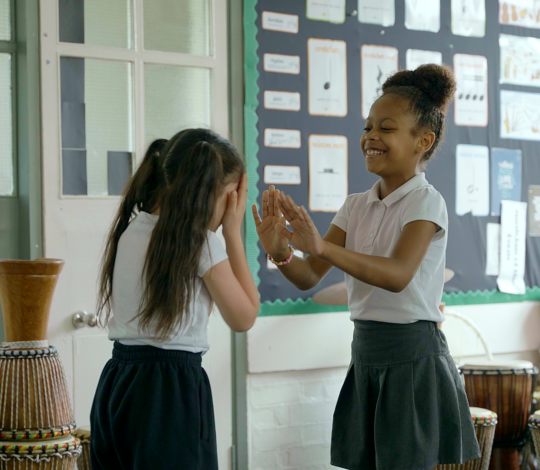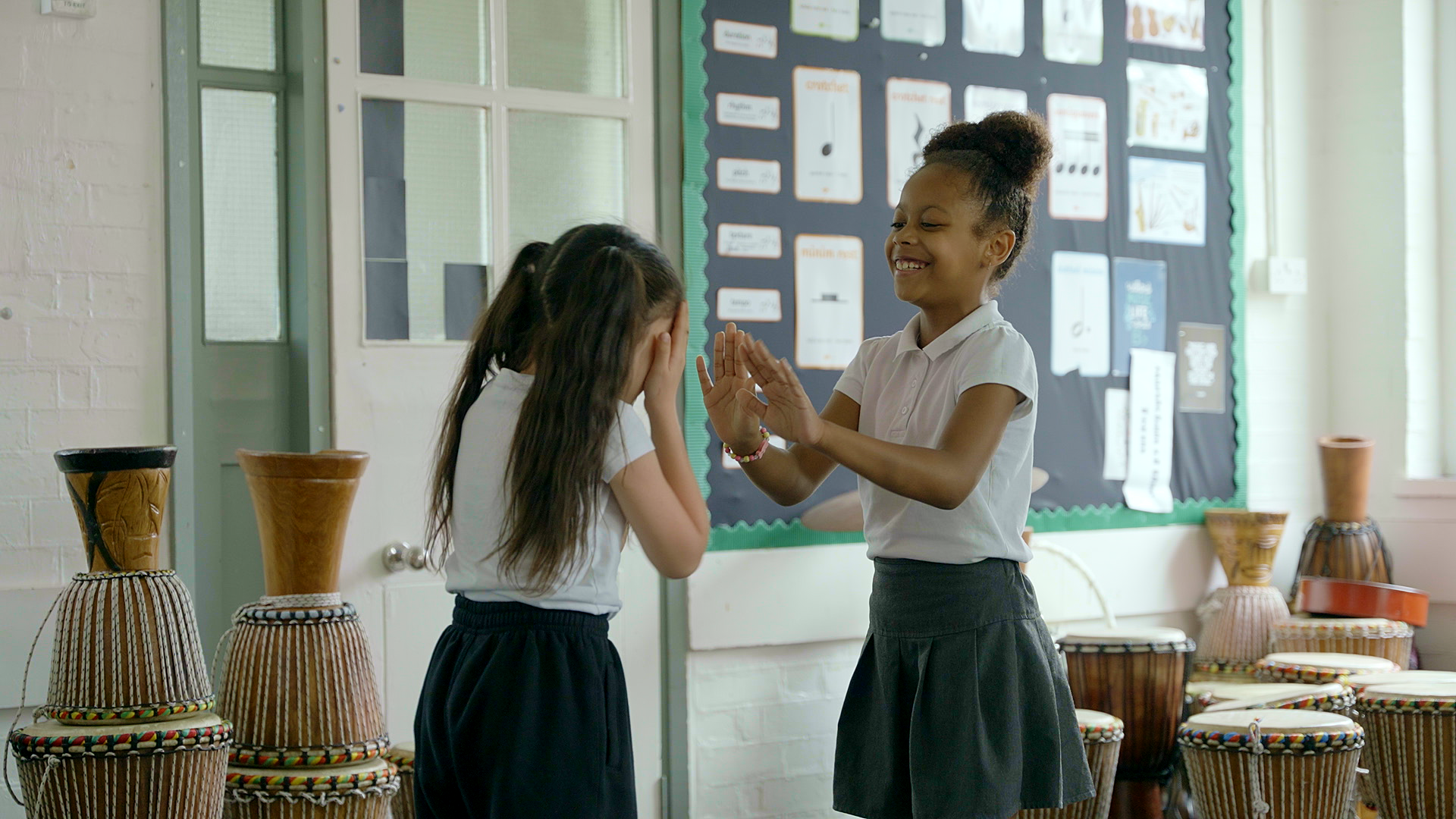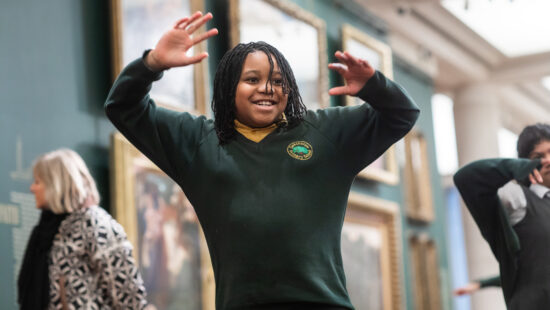International Women’s Day 2023

International Women’s Day 2023
Today is International Women’s Day, a day marked across the world each year to celebrate women’s achievement, raise awareness about discrimination, and act against gender inequality. At Artis, we are proud to have female role models at the helm of our organisation, but whilst we are now in a position where women can learn, train, work, and lead in the Arts, this wasn’t always the case. Today, we take a dive into the history of Women and Arts Education to celebrate the gender diversity in our organisation today, and the people who made that possible.

Theatre & Women
When the theatre arose in Ancient Greece in the first century, women were not allowed to perform, as the stage was considered ‘too dangerous’ for actresses. Female characters were portrayed exclusively by male actors, even the most renowned heroines of the time such as Antigone and Pandora were only ever played by men. This remained the same for centuries to come, with very few women participating in the theatrical arts.
It wasn’t until the arrival of opera during the 16th century that women began to grace the stage, and some productions even called for women in starring roles. But female performers still faced many challenges. It was considered inappropriate and unbecoming of a woman to perform on stage, and often female roles were performed by male Castrati performers. Castrati were men who would have surgical enhancements to try and achieve the quality of a woman’s pitch without the need for a female performer. Women were also barred from singing publicly in church choirs during this time, with young boys fulfilling the roles of sopranos.
Despite this being the era of Shakespeare, a playwright who created some of the first female characters to be portrayed with emotional depth, women were still not welcome on stage and these characters were played by men. In the rare cases that women would grace the stage, they were often harassed and berated during their performances for being ‘unchaste’ and behaving inappropriately.
Fine Art & Women
It was the same for fine art. During this time, female artists were heavily prejudiced against. Male critics openly expressed their views that women were not capable of creating ‘serious’ art, and it was extremely difficult, if not impossible, for women to attend art schools. When women did attend they often found their studies very different to that of their male contemporaries, with constant debate on which works women should be exposed to and which subjects they may paint and draw, many found their creativity stunted and their training heavily impacted.
Inspirational Industry Women
In the 17th Century, the world saw the first female playwrights emerge onto the scene, bringing women’s voices and perspectives to the stage for the first time. Previously, female writers had to publish under male pseudonyms in order to have their works taken seriously. For example, the Brontë Sisters, who are now widely considered some of the most influential writers of the time, had pose as Currer, Ellis and Acton Bell to get their works published. One of the most notable early female playwrights was Aphra Behn, who broke cultural barriers writing about female-centric topics and placing female characters at the centre of her plots. It was during this time that Margaret Hughes first graced the stage as one of the first female theatre actresses, playing the part of Desdemona in Othello at the Vere Street Theatre. From this point forward, women began to become more prominent in the theatre, paving the way for female performers to come to the fore and have prominent roles on Broadway and in the West End during the 19th and 20th centuries.
Over the years since, there have been many notable female creators, actresses, writers, singers, dancers and choreographers who have worked hard to break down barriers and make a name for themselves in the Arts. Some of whom include:
- Hallie Flanagan, professor of drama at Vassar College and director of the Federal Theatre Project, providing free admission for people of all backgrounds to experience live theatre.
- Margo Jones, a theatre director with a passion for regional theatre, expanding live experiences beyond Broadway by opening theatres in Texas.
- Lorraine Hansberry, the first black woman to have a play produced on Broadway.
- Lynn Nottage, the first and only woman to win a Pulitzer Prize for drama twice.
- Isadora Duncan, pioneer of free dance and founder of accessible dance schools across Europe.
- Carole King, composer of ‘Will You Still Love Me Tomorrow’ for The Shirelles which became the first number 1 for an African American girl group in history, and first ever female recipient of the Gershwin Prize for Popular Song.
- Sylvia Robinson, signed the Sugarhill Gang to her label, Sugar Hill Records, and released the first ever Hip Hop hit.
Our Mission & The Future of Artis
At Artis, we are determined to continue the work of these influential women in bringing the Arts to people of all backgrounds and ensuring that every child can reap the benefits of a creative education. We have a strong team of women who help lead our organisation on our Artis Management Team, Board of Trustees, and panel of Performing Arts Specialists.
We are also proud to have been founded by a pioneering industry female, Rebecca Boyle Suh, who says: “As a woman in the arts, I’m particularly keen to encourage girls to exercise the power of their voices through the arts. Social emotional learning is at the heart of what Artis does every day with thousands of girls.”
We know the work that we do in sharing movement, drama, and music skills with children across the UK, regardless of gender, race, socio-economic status or background, is imperative to ensuring that the arts remains an equitable and open place for all people to thrive. There is still work to do until the playing field is truly level, but today we celebrate the work that those before us have done, and vow to keep working to allow all people the chance to create, learn and thrive.
Sources:
https://victorianweb.org/gender/artschools/training.html
https://www.artsy.net/article/artsy-editorial-work-female-artists-valued-work-male-artists
https://en.wikipedia.org/wiki/Aphra_Behn
https://villagetheatre.wordpress.com/2021/03/03/women-in-theatre-history/
https://bachtrack.com/playlist-8-femmes-choregraphes-qui-ont-revolutionne-la-danse-novembre-2020
https://www.bbc.co.uk/music/articles/6f9d5d38-4e7b-4b82-8bb6-5e35a3c49dbe

